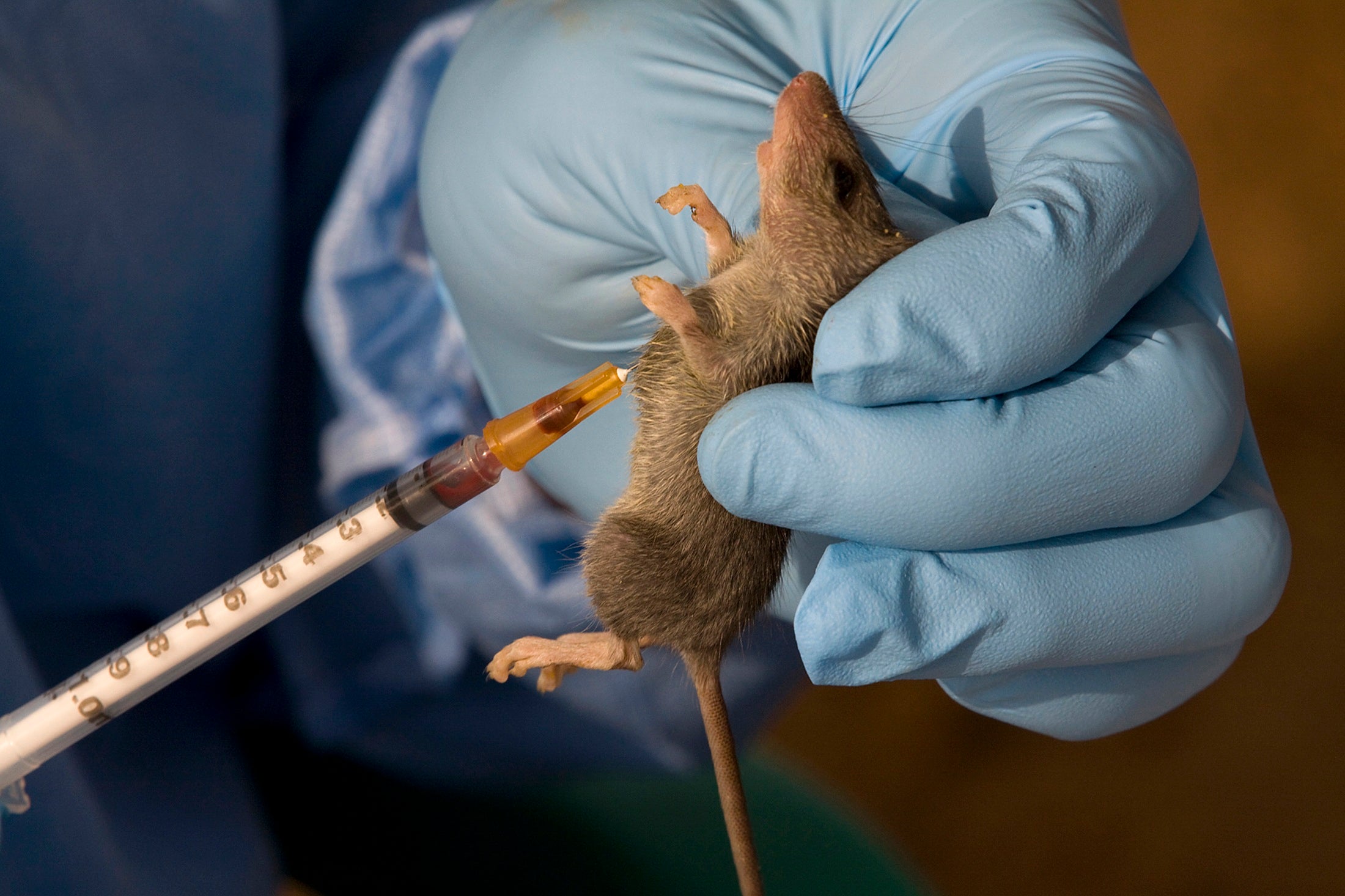
A person with Lassa fever – which can cause Ebola-like illness in some people – travelled to England at the end of February, it has been announced.
The UK Health Security Agency (UKHSA) said it had been informed under international rules that a person travelled to England from Nigeria while they were unwell with Lassa fever.
They then returned to Nigeria where they were diagnosed, it said.
The UKHSA is now “working to identify people who were in contact with the affected individual while they were in the country”.
What is Lassa fever?
Lassa fever is an acute viral haemorrhagic illness, belonging to the virus family Arenaviridae, that lasts between two and 21 days, according to the World Health Organisation (WHO).
The virus, for which there is no approved vaccine, is known to be endemic in Benin, Ghana, Guinea, Liberia, Mali, Sierra Leone, and Nigeria.
But it also probably exists in other West African countries as well.
What are the symptoms?
After starting as a fever with aches and pains, the symptoms can progress to headache, vomiting and diarrhoea.
Severe cases can cause victims to bleed from the mouth and nose.
How is it transmitted and is it easy to catch?

Humans can contract Lassa fever from eating food that has been tainted by the urine or faeces of rodents.
The virus, like Ebola, can also be spread through contact with the bodily fluids of a sick person, but it does not spread easily between humans.
According to the WHO, there is no epidemiological evidence supporting airborne spread from person to person.
How deadly is Lassa fever?
Most people with Lassa fever will make a full recovery although severe illness can occur.
The overall case-fatality rate is 1 per cent, according to the WHO.
But the observed case-fatality rate among patients who are admitted to hospital with severe cases of Lassa fever is 15 per cent.
Early supportive care with rehydration and symptomatic treatment improves survival chances.
How many cases have there been in the UK?
Lassa fever cases are rare in the UK. Since 1971, there have been 13 confirmed cases of Lassa fever reported in the UK. All were linked to travel or were travel associated, according to the UKHSA.
The last known incident was in February 2022 when a confirmed case, with recent travel to Mali, was reported. The person later died. Two further cases linked to this were subsequently detected.
What is the risk to the public?
The UKHSA said the risk to the public “remains very low”.
It is “working to identify people who were in contact with the affected individual while they were in the country”.
The menopause: How does it impact mental and cognitive function?
How the longer brighter days of spring can make us more productive
Sports presenter Anita Jones says she was ‘gaslit by doctors for 14 years’
Modern workplaces are ‘hostile’ to mothers – that has to change
These are the seven things women’s health experts wish everybody knew
Tips for brightening your skin for spring if its looking dull after winter







